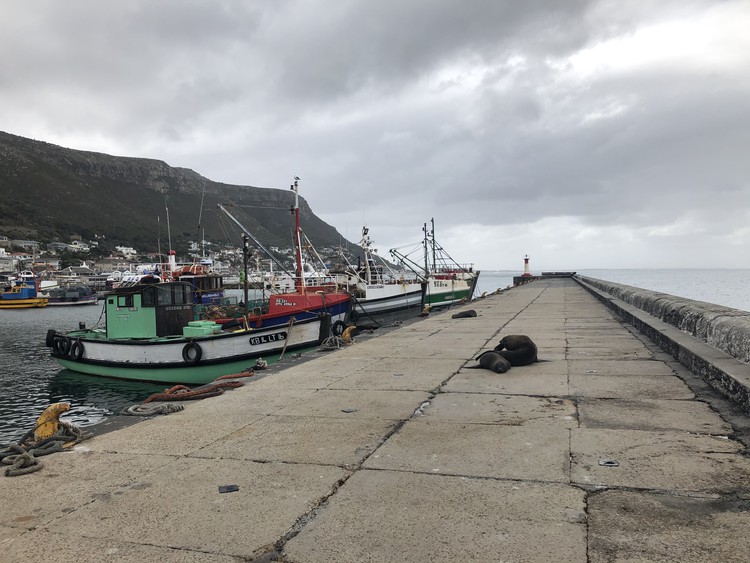Covid-19: Lockdown regulations threaten livelihoods of line fishermen
“Everybody needs the snoek run to make it through the year”
“Everybody needs the snoek run to make it through the year,” says Naaim Jacobs, a line fisherman from Lavender Hill who grew up fishing at the Kalk Bay harbour.
The current lockdown regulations could leave over a thousand commercial line fisherman destitute, according to industry representatives. This is because of restrictions on the ability to fish during the annual snoek run on the West Coast, which makes up most of a line fisherman’s yearly income.
Commercial line fishermen with permits are regarded as essential service workers. However, the lockdown regulations prevent them from staying overnight in any of the coastal towns.
Initially, fishermen were not allowed to travel outside their community to fish. But following pushback from those who rely on the three to four month snoek run in Lambert’s Bay and surrounding coastal towns to get them through the year, government has relented a bit, but not enough to satisfy the fishermen.
In a statement on 3 April, Minister of Environmental Affairs, Forestry and Fisheries Barbara Creecy, announced that while fishermen are allowed to travel to the West Coast to catch snoek, accommodation in those villages would remain closed. “Fishermen have to concentrate on fishing in areas where they can move in and out in a single day,” she said.
But with coastal fish supply becoming scarce, local line fishermen like Jacobs are becoming increasingly dependent on the West Coast snoek run to support their families. This was not always the case, says Jacobs.
He says that he used to catch snoek easily just “ten minutes outside [Kalk Bay] harbour”. Jacobs blames big companies and trawlers for overfishing and “causing a serious decline in resources” for the line fishermen. He added that some fishermen survived on R20,000 per year and the situation was only getting worse.
Wally Croome, chairperson of the South African Commercial Linefish Association, said that at least 90% of line fishermen would be “taken out of the equation for the snoek run”.
“You can’t get up at 2am, ride to Lambert’s Bay, go to sea, then drive back home for four hours to Cape Town. The costs are just too much,” said Croome.
This was the case for Owen Dunsdon, a line fisherman from Hermanus. On Friday, the same day as Creecy’s announcement, Dunsdon organised a trip to Lambert’s Bay as he has been doing for the last 20 years. He said that the police stopped him and his crew at midnight just outside Lambert’s. After showing them the correct papers and permit, they were told that they could not enter until daytime, so they slept on the road two kilometres outside the town.
“We could fish in the day, but then were escorted out of the town by the police in the afternoon. We had to drive 600km back to Hermanus. I cannot drive 1,000km every day. I made a loss of expenses from petrol and bait,” said Dunsdon.
Furdy Henn, a line-fisherman from Overberg told GroundUp: “We obviously can’t ignore reasons for the lockdown”, but he urged the government to try to find “practical solutions” that would secure their livelihood.
Henn said that line fishermen usually make between 80 and 90% of their annual income during the snoek run. He called for the department to “designate an area in the coast, like a caravan park [for fishermen to stay overnight] and manage it accordingly”.
Alieya Haider, spokesperson for the Department of Environmental Affairs, Forestry and Fisheries, said that the department could not respond to our questions because it was “waiting for amended regulations from the Department of Small Business Development and Department of Tourism on how to deal with those affected by the fishing industry during Covid-19, as laid out by the national Joint Operational Intelligence Structure”.
Support independent journalism
Donate using Payfast

Don't miss out on the latest news
We respect your privacy, and promise we won't spam you.
© 2020 GroundUp.
This article is licensed under a Creative Commons Attribution-NoDerivatives 4.0 International License.
You may republish this article, so long as you credit the authors and GroundUp, and do not change the text. Please include a link back to the original article.

